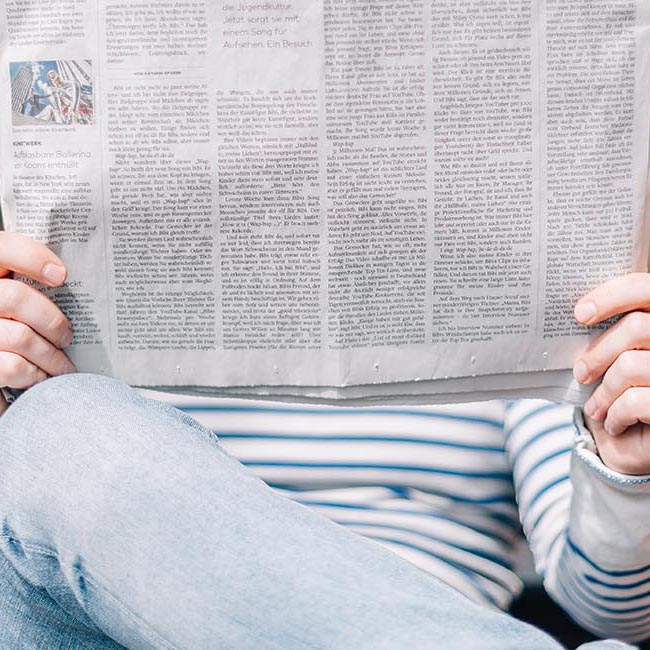
At ahti we follow interesting news items about health, data and innovation. In this way, we gain insights about improvements in health and healthcare. In the last few weeks we have found the following items to share with you. Some are in Dutch, some are in English.
- Coronavirus is forcing a trade-off between privacy and public health – The Economist, 24-03-2020
The crisis has governments and companies scrambling to decide when it’s appropriate to lift data privacy protections and AI ethics guidelines.
2. Telecomdata verzamelen loopt al snel uit de hand – FD, 25-03-2020
Europese Commissie wil telecomdata gebruiken om coronacrisis te bestrijden. Die data kunnen helpen om naleving van coronamaatregelen te controleren. Alleen een strak ingericht systeem kan privacyzorgen wegnemen.
3. Instagram may offer clues about the spread of the new coronavirus – The Economist, 17-03-202
Posts on the social-media platform show the movements of visitors from virus hotspots.
4. Big data en gps geven controle in corona-aanpak, gebruik die mogelijkheid – Trouw, 21-03-202
Wetenschappers kunnen nu al helpen om de besmetting enigszins te sturen, schrijven Xander Koolman, gezondheidseconoom bij de VU, en David Ikkersheim, arts, bedrijfskundige en partner bij KPMG Health.
5. Apps dringen in China besmettingen terug: ‘Nieuwe mijlpaal in verspreiding massasurveillance’ – De Volkskrant, 23-03-2020
Een telefoonapp die het besmettingsrisico van Chinezen bepaalt, helpt de verspreiding van het coronavirus tegen te gaan. Critici vrezen dat dit nieuwe surveillancesysteem niet meer verdwijnt.
6. Berekeningen die je niet meer op een bierviltje doet – NRC, 22-03-2020
Afstand houden, scholen sluiten, ‘lockdown’: bij het RIVM rekenen zeer complexe wiskundige modellen alle maatregelen na. NRC sprak er vijf wetenschappers over. “Zonder wiskundige modellen is niet te begrijpen wat je ziet.”
7. Opname van speciale sessie van CROI (Conference on Retroviruses and Opportunistic Infections) over COVID-19
8. ‘Statistieken zijn niet boeiend, antwoorden wel’ – FD, 08-03-2020
In een tijd waarin allerhande instellingen die met data werken onder vuur liggen, blijft het Centraal Bureau voor de Statistiek vooralsnog soeverein buiten schot. ‘Wij hebben er niet veel last van dat mensen onze cijfers niet vertrouwen’, glimlacht directeur-generaal Tjark Tjin-A-Tsoi (54). ‘Ze geloven dat die kloppen.’
9. A deluge of data is giving rise to a new economy – The Economist, 20-02-2020
An army of doppelgangers is invading the world. Digital copies of aircraft engines, wind turbines and other heavy equipment came first. Now the electronic ghosts of smaller and larger things are joining them in the virtual realm, from toothbrushes and traffic lights to entire shops and factories. Even humans have begun developing these alter egos. In America the National Football League is planning to design an electronic avatar for every player.
“Yet even more striking than the rapid growth of the data economy are the tensions and trade-offs it produces. Take its economics. In some ways, data are a natural resource, much like oil, which can be owned and traded (this newspaper called data the “world’s most valuable resource” in 2017). But data also have characteristics of a public good, which ought to be used as widely as possible to maximise wealth creation. New institutions must be created to reflect this tension, as was the case for intellectual property.”
10. Kabinet gaat uitwisseling patiëntgegevens coördineren – Volkskrant, 10-03-2020
Artsen, ziekenhuizen en andere medici krijgen landelijke voorschriften over het uitwisselen van gegevens over patiënten. Dat moet de kwaliteit van de zorg verbeteren. Patiënten hoeven dan niet meer steeds hetzelfde verhaal te vertellen aan opeenvolgende artsen.
11. In Kamp Moria ontloopt Europa zijn verplichtingen – NRC, 16-03-2020
Collega Steven van de Vijver was in kamp Moria en deelde zijn bevindingen daar.

